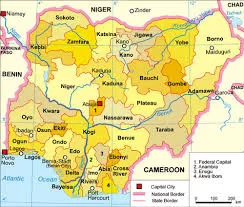
FOR AND AGAINST REGIONAL GOVT
Even before a memo to that effect is presented to either the Senate or the House of Representatives ad hoc committees on the review of the 1999 Constitution, the proposal for Nigeria to return to regional government has gained ground, overshadowing other items before the committees.
The 10th National Assembly is currently in the processes of reviewing the 1999 Constitution.
The Senate committee alone has received 37 fresh constitution alteration bills, in addition to the 16 inherited from the 9th Senate, bringing the number to 53.
During a recent retreat by members of the Senate ad hoc committee in Kano, the issue of regionalism came up and not only generated a heated debate but also elicited reactions across the country.
Adebayo Knocks Tinubu over fuel hike
Why we took initiative for Gowon’s 90th birthday –Jerry Gana
It was learnt that the matter came up when a document sent to the Presidency and copied to the leadership of both chambers of the National Assembly became public knowledge.
The memo titled: “Path and Processes Towards Restructuring Nigeria,” written by Akin Fapohunda, a retired director in the federal service is advocating for a return to regionalism as a way of fostering development in the country.
Fapohunda, when contacted by our correspondent, confirmed that he had sent a document with that title to the Presidency and copied same to the leadership of the National Assembly.
The feelings that the proposal may return to the National Assembly as an executive bill piqued the interest of stakeholders in the former regions based on their understanding and perceptions about how their areas would fare under such an arrangement.
Prior to the nation’s independence in 1960, the nation was divided into three regions: North, West and East, and in1963, an additional region, Midwest was created, making the number four in the First Republic.
The regions were, however, collapsed in 1966 by the regime of General Aguiyi Ironsi with the promulgation of Decree No. 34.
That the issue of returning the country to the old structure is resurfacing 58 years after indicates there are many who prefer the regional system.
Proponents of regionalism point at how the defunct regions harnessed the natural resources in their respective domains to build robust economies that served them well and even enabled them to contribute to the centre in a pre-oil-dependent economy.
The current structure, those in support of regionalism have argued, does not bring out the potentials of the governance units, which basically fold their arms waiting for federation allocations derived from oil sales.
Secretary of the Arewa Consultative Forum (ACF), Alhaji Murtala Aliyu traced the agitation for regionalism to the colonial era when minority ethnic groups began to demand for recognition, resulting in the establishment of the Willink Commission to address their concerns.
He said the Willink Commission highlighted this issue, and when the civil war started, 12 states were created based on the sentiments to address the demands of minorities.
Fapohunda, whose memo generated the recent controversy, told Weekend Trust that he penned the document based on the significance of the demand on the need for sociopolitical fairness.
He said: “On a political basis, Nigeria is not one. We have been deceiving ourselves. The only way to address such imbalances is for the country to return to regions.
“If we say we have 600 tribes in Nigeria, let’s know these 600. Why are we sitting on them? Why are we saying only Wa Zo Bia? You cannot have justice when you sit on some other people. So, there is the need for us to regionalise so that there would be an expression of self-determination”, he said, adding that the current structure of Nigeria could not be sustained.
Secretary of the Igbo Elders Consultative Forum and the Ohanaeze Council of Elders in the 19 Northern States and the FCT, Professor Charles Nwekeaku, agrees that the current system is faulty because it is “unitary centralism”.
He said a system where 68 items are in the Exclusive List makes the centre and the office of the president too powerful.
While the components that make up the former Western and Eastern regions have been upbeat about return to regionalism, the North appears to be cautious about such demands.
One of our correspondents reported how the debate on return to regionalism divided senators from the North and South during a two-day retreat on the amendments to the 1999 constitution which held in Kano between Friday September 27 and Sunday 29.
When the issue came up, a ranking senator, Abdul Ningi, representing Bauchi Central Senatorial District stated pointblank that his constituents will not support the idea of return to regionalism.
He said this is because they did not enjoy development when the system was practiced in the First Republic.
The ACF said it is open to discussions on the matter but counselled that emotional demands would not solve the problems
 Premium News
Premium News